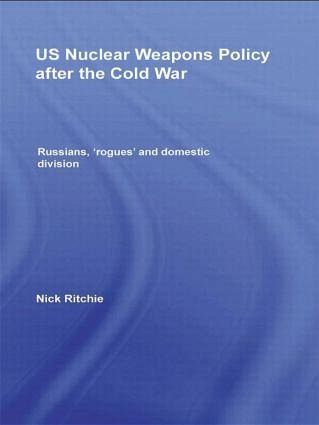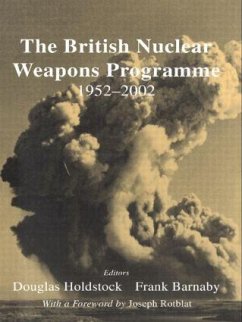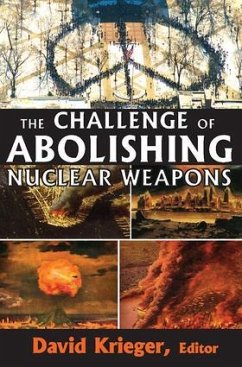
US Nuclear Weapons Policy After the Cold War
Russians, 'Rogues' and Domestic Division
Versandkostenfrei!
Versandfertig in 1-2 Wochen
122,99 €
inkl. MwSt.
Weitere Ausgaben:

PAYBACK Punkte
61 °P sammeln!
This book offers an in-depth examination of America's nuclear weapons policy since the end of the Cold War. Exploring nuclear forces structure, arms control, regional planning and the weapons production complex, the volume identifies competing sets of ideas about nuclear weapons and domestic political constraints on major shifts in policy. It provides a detailed analysis of the complex evolution of policy, the factors affecting policy formulation, competing understandings of the role of nuclear weapons in US national security discourse, and the likely future direction of policy. The book argue...
This book offers an in-depth examination of America's nuclear weapons policy since the end of the Cold War. Exploring nuclear forces structure, arms control, regional planning and the weapons production complex, the volume identifies competing sets of ideas about nuclear weapons and domestic political constraints on major shifts in policy. It provides a detailed analysis of the complex evolution of policy, the factors affecting policy formulation, competing understandings of the role of nuclear weapons in US national security discourse, and the likely future direction of policy. The book argues that US policy has not proceeded in a linear, rational and internally consistent direction, and that it entered a second post-Cold War phase under President George W. Bush. However, domestic political processes and lack of political and military interest in America's nuclear forces have constrained major shifts in nuclear weapons policy. This book will be of much interest to students of US foreign policy, nuclear proliferation, strategic studies and IR in general.













